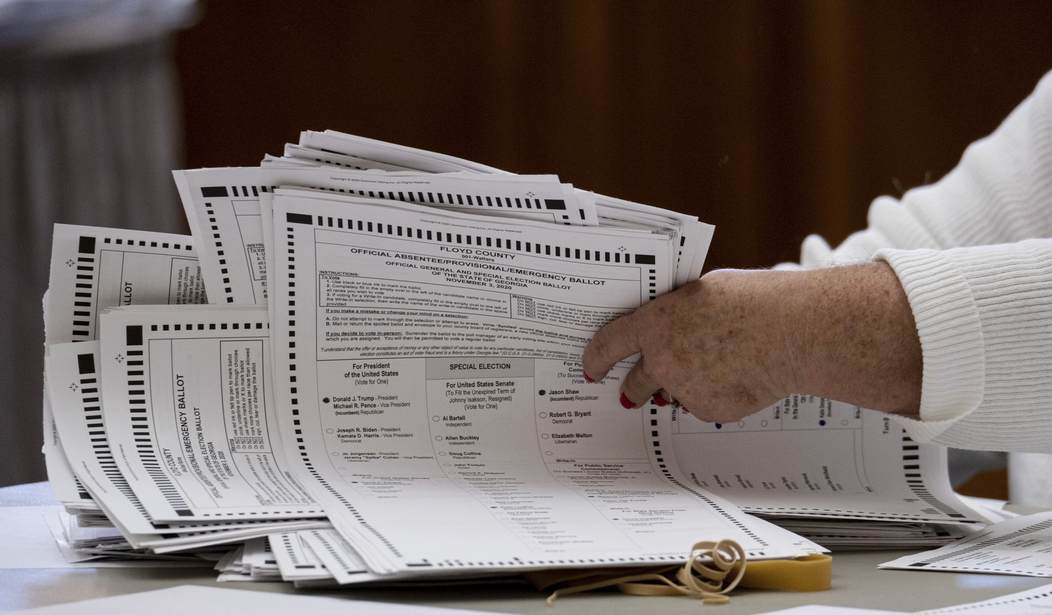On Wednesday, YouTube announced it would remove any videos claiming that widespread fraud or errors changed the outcome of the 2020 presidential election. YouTube’s new policy appears to rely on the idea that claiming that “widespread fraud or errors changed the outcome of the U.S. Presidential election” would constitute misinformation. Is that true?
In its announcement on Wednesday, YouTube noted that during the election season, it terminated over 8,000 channels and thousands of “harmful and misleading elections-related videos.” The platform removed more than 77 percent of these videos before they reached 100 views. Yet YouTube also noted that it previously allowed some videos disputing various aspects of the election.
“Our policies prohibit misleading viewers about where and how to vote. We also disallow content alleging widespread fraud or errors changed the outcome of a historical U.S. Presidential election. However in some cases, that has meant allowing controversial views on the outcome or process of counting votes of a current election as election officials have worked to finalize counts,” the platform explained.
Yet YouTube announced that the days for such leniency are over.
“Yesterday was the safe harbor deadline for the U.S. Presidential election and enough states have certified their election results to determine a President-elect,” the platform explained. “Given that, we will start removing any piece of content uploaded today (or anytime after) that misleads people by alleging that widespread fraud or errors changed the outcome of the 2020 U.S. Presidential election, in line with our approach towards historical U.S. Presidential elections.”
YouTube explicitly stated that it would remove “videos claiming that a Presidential candidate won the election due to widespread software glitches or counting errors. We will begin enforcing this policy today, and will ramp up in the weeks to come. As always, news coverage and commentary on these issues can remain on our site if there’s sufficient education, documentary, scientific or artistic context.”
House Minority Whip Steve Scalise (R-La.) sounded the alarm, condemning the censorship.
“YouTube just announced they’ll start taking down videos about 2020 election fraud. Big Tech wants to silence conversations that might hurt their Democrat friends. Enough. Time for some big changes,” he tweeted.
Others noted that Attorney General Ken Paxton (R-Texas) just filed a historic challenge with the U.S. Supreme Court, challenging the election results in four key swing states because election officials allegedly violated the laws duly passed by state legislatures, and the Constitution dictates that only state legislatures can make law on how voters will choose electors for the Electoral College.
In fact, no fewer than 17 states joined Texas’s lawsuit, and President Donald Trump filed a motion to intervene on Wednesday.
Each of these legal motions claims that election officials’ illegal activity made a crucial difference in the election — involving more votes than the margin of victory in swing states.
As Trump’s motion to intervene explains, the president “prevailed on nearly every historical indicia of success in presidential elections,” winning 18 of the nation’s 19 “bellwether counties,” winning the highest margin among non-whites of any Republican since Richard Nixon in 1960, and boosting Republicans across the country to victory — even though he ostensibly lost. In a survey, nearly half of respondents (47 percent — 75 percent of Republicans and 30 percent of Democrats) told Rasmussen Reports they think the election was stolen from Trump.
Mark Zuckerberg’s Center for Tech and Civic Life (CTCL) may explain these bizarre circumstances. CTCL poured millions into local election offices in Democratic-leaning areas of swing states, arguably greasing the skids for the massive turnout that gave Joe Biden victory in the election. This influence operation may not have been illegal, but it certainly raises alarm bells.
YouTube’s community guidelines prohibit spam, scams, manipulated media, coordinated influence operations, and content that seeks to incite violence. Yet it seems incredibly premature to claim that challenges to the election results fall into these categories.
Perhaps, when all is said and done, concerns about the election will be answered. That is going to be rather difficult, considering how election officials changed the rules to undermine important protections for election integrity, but it may happen. As of now, however, major questions remain, and YouTube is wrong to censor videos raising these concerns.
Tyler O’Neil is the author of Making Hate Pay: The Corruption of the Southern Poverty Law Center. Follow him on Twitter at @Tyler2ONeil.









